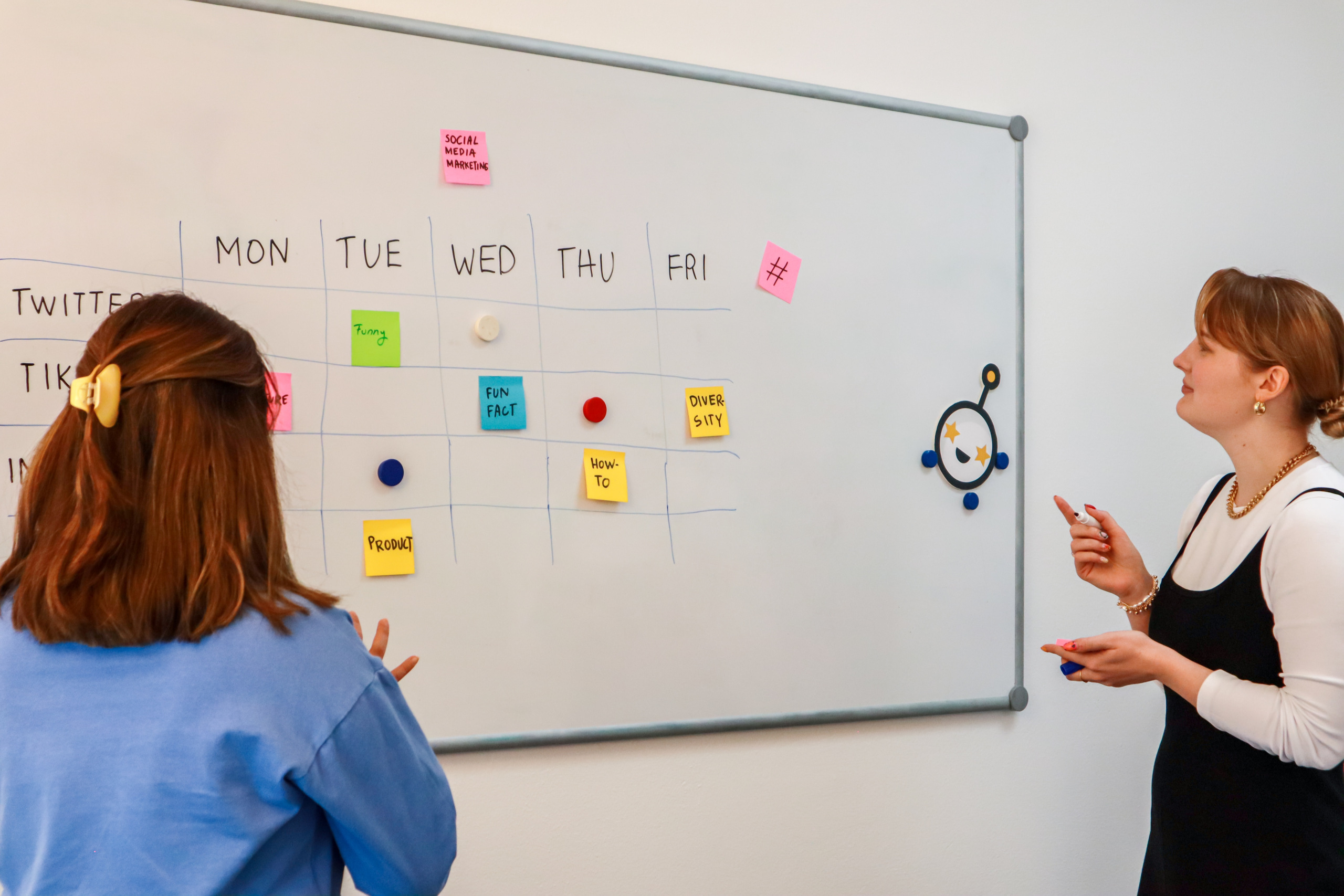Lactation consultants: Put your private practice on the map
We see you, IBCLCs.
You’ve worked hard to earn your International Board Certified Lactation Consultant credential and laid the foundation for a strong business by creating a business plan and a budget: Now you’re ready to begin supporting families in your community with your private practice lactation consultant services.
But what are the key steps you can take to put you on the lactation map?
Here, we’ll look at how to bring awareness to your new private practice — and even if you’re an experienced private practice lactation consultant, these pro tips are likely worth revisiting!
The following is a list of partners, resources, and other avenues you can use to help you gain access to new patients and ensure your business gains visibility.
IBCLCs, when we say we see you, we mean it. These resources aren’t all that are available to you — The Lactation Network team is your biggest cheerleader and is committed to helping you build your practice, your way.
Find additional myTLN portal resources to help amplify your business to prospective patients, and contact the TLN team for personalized help. Not yet a part of the TLN IBCLC network? It’s free to join.
 CONTACT LOCAL HOSPITALS AND ASK THEM TO ADD YOU TO THEIR LACTATION RESOURCE LIST.
CONTACT LOCAL HOSPITALS AND ASK THEM TO ADD YOU TO THEIR LACTATION RESOURCE LIST.
Most hospitals maintain a lactation resources list and provide their postpartum patients with contact information for local IBCLCs who provide outpatient support.
Hospitals with a “baby-friendly” accreditation are required to coordinate discharge so that parents and their infants have timely access to ongoing support and care. Baby Friendly USA expands on this requirement in its guidelines and evaluation criteria:
“As part of protecting, promoting, and supporting breastfeeding, discharge from facilities providing maternity and newborn services should be planned for and coordinated so that parents and their infants have access to ongoing support and receive appropriate care.”
Your support and clinical care qualifications are precisely what families need. Here’s how you put your services front and center:
- Reach out to every hospital in your area with a Labor and Delivery department and ask if they keep a list of local private practice lactation resources to share with postpartum patients at discharge. Ask how often they update their list, and request that they add your business information. If they don’t maintain a list, ask how you can work with them to support their patients once they are discharged. Can you include a flyer or business card in the discharge packet they provide to their postpartum patients? Or place a flyer in a common area?
- Not sure who to ask for when you call? The contact to ask for is typically in the lactation department, mother-baby unit, or the charge nurse on the postpartum floor.
Pro tip: If the hospital doesn’t maintain a lactation resources list and isn’t open to accepting business cards/flyers, ask if you can schedule a time for a quick “get to know you” meeting with the manager of the lactation team. It’s incredibly helpful to meet the LCs who are providing in-patient lactation care in your community!
 CONTACT HOSPITAL EDUCATION DEPARTMENTS
CONTACT HOSPITAL EDUCATION DEPARTMENTS
Larger hospitals may have a separate patient education department that coordinates classes and local patient resources. Introduce yourself to the manager of the education department and ask to be added to any lists they maintain, or whether you might be able to provide cards or flyers.
 CONSIDER ADDING YOURSELF TO OTHER LACTATION DIRECTORIES
CONSIDER ADDING YOURSELF TO OTHER LACTATION DIRECTORIES
Do your local breastfeeding task forces and regional breastfeeding coalitions publish local LC directories? There may be a fee to be included, or membership may be required. Both ILCA and USLCA offer membership-based LC directories.
 TEACH PRENATAL BREASTFEEDING CLASSES
TEACH PRENATAL BREASTFEEDING CLASSES
Offering prenatal breastfeeding classes is a great way to introduce yourself to your local community!
Are you new to teaching classes and feeling a little unsure? Like most new endeavors, you’ll likely start to feel more comfortable once you’ve done it a few times! In the meantime, think about what class structure feels good to you as you get started. Classes can be large or small, in person or virtual, inside an office/store, or outside at a park. Consider offering classes to groups like a local YMCA, recreation center, adult center, preschool, or faith center. Does co-teaching sound more appealing? Connect with another IBCLC or birth worker and look at co-teaching possibilities.
In addition to learning tons of useful breastfeeding information for foundational breastfeeding success, families who attend your prenatal breastfeeding class also get to know you.
Pro tip: Parents often return to the LC who taught their class for postpartum lactation support, so take time at the end of your class to explain next steps for working together and provide a takeaway resource with your contact information. Your takeaway can be as simple as an educational flyer, digital infographic, or fun branded gift.
 OFFER BREASTFEEDING SUPPORT GROUPS
OFFER BREASTFEEDING SUPPORT GROUPS
Consider hosting a weekly breastfeeding support group. They are popular among parents (for lots of great reasons), so once you find a good time and location, it’s likely that your class will naturally pick up momentum. This is one of the fastest ways to introduce yourself to the community.
Support groups are usually free or low-cost. If you collect a small fee, you might also provide refreshments to attendees. You may also provide access to a professional scale for parents to take a weekly weight or do weighted feeds. Some private practice lactation consultants keep a card for each baby, recording and tracking weight information.
A common structure for a breastfeeding support group is to offer a few minutes of breastfeeding education, introduce a breastfeeding/parenting topic, and then facilitate a group conversation. Once the conversation is flowing, many LCs will check in with attendees, or make themselves available for quick lactation questions.
Pro tip: It’s helpful to share the support group “rules” in advance. Let attendees know how to schedule a lactation consultation with you, and when a consultation is needed.
 ASK YOUR CONTACTS TO SHARE YOUR BUSINESS INFORMATION
ASK YOUR CONTACTS TO SHARE YOUR BUSINESS INFORMATION
Launching a business takes a village: Don’t be shy about asking friends and family to spread the word that you are providing professional lactation support! As your private practice grows, patients you’ve supported will go on to refer you to their family and friends and your business will begin to grow exponentially.
Are you new to building a private practice and looking for a step-by-step guide to establishing one? Log into the myTLN portal to access the “Starting Your Practice Playbook.”
Not yet a TLN IBCLC? It’s free to join. Go here to schedule a call and learn how TLN can help you grow your practice.



